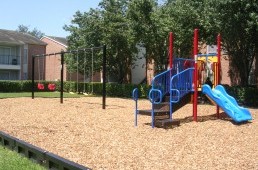
January 30, 2015 | by Katie Claflin
Categories: Affordable Housing
Researchers have long studied the links between decent, affordable housing and health outcomes for families and children. While some of the links may seem obvious—such as reduced exposure to allergens and environmental toxins—there are others that are harder to quantify.
A study released by the Center for Housing Policy provides an in depth analysis on exactly how housing can impact family health.
The study reviews and provides concrete examples of 10 scenarios in which housing can directly affect health outcomes, including less recognized outcomes relating to mental and emotional health. For example, access to safe, decent and affordable housing can improve family health by:
Click here to read more about all 10 scenarios in depth.
Worldwide, researchers continue to find strong connections between safe and decent housing and improved health. For example, Lisa Harker, a British poverty expert, found that poor housing conditions can increase a child’s risk of severe health problems by up to 25%. Another study conducted by Emory University found that Malawi children under the age of 5 living in homes build by Habitat for Humanity had 44% fewer cases of malaria, respiratory infections, and gastrointestinal diseases.
Click here to read more about the worldwide connections between health and housing on the National Housing Institute’s Rooflines blog.
On the House blog posts are meant to provide general information on various housing-related issues, research and programs. We are not liable for any errors or inaccuracies in the information provided by blog sources. Furthermore, this blog is not legal advice and should not be used as a substitute for legal advice from a licensed professional attorney.
TSAHC reviews all blog comments before they are posted to ensure a positive experience for our online community. Off-topic comments; hostile, derogatory or deliberately insulting comments; and comments specifically promoting goods and services will not be posted.
Approved comments will be published in their entirety. Personal information will not be removed unless it pertains to someone other than the person submitting the comment. For more information, please see our Comment Posting Guidelines.
To remove a previously submitted and published comment, please contact Anna Orendain at [email protected].
If you have a question regarding any of TSAHC's programs, please contact us.
